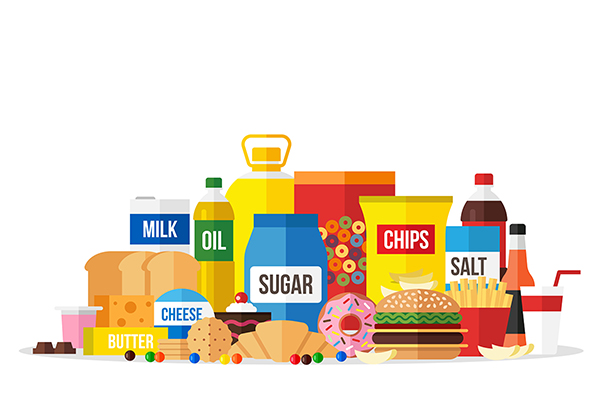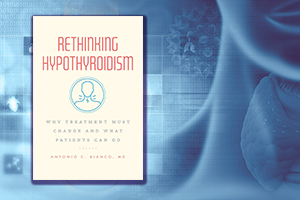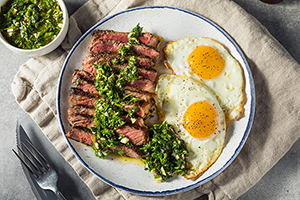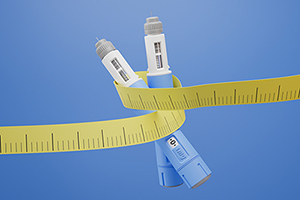



| By Dr. Ronald Hoffman

It’s a verity that we should avoid “junk foods” and “fast foods”. Your mom could have told you as much. But until recently, there was a lack of scientific consensus on what exactly they were, why they’re so bad for us, and whether avoiding them really makes a significant difference in health outcomes.
But in 2010, Brazilian researchers created a formal classification system for ultra-processed foods (UPFs)—and studies began conclusively linking them to the risk of disease and premature death.
Called the NOVA classification, it formally rated food on the degree to which “sophisticated equipment and technology” was used to alter food from its fresh, natural state.
What are UPFs? “Ingredients characteristic of UPFs include food substances of no or rare culinary use, including sugar, protein and oil derivatives (e.g., high-fructose corn syrup, maltodextrin, protein isolates, hydrogenated oil) and cosmetic additives (e.g., colours, flavours, flavour enhancers, emulsifiers, thickeners, and artificial sweeteners) designed to make the final product more palatable.” (Source) That means a high percentage of foods found in supermarket aisles contribute to our UPF burden.
The rating system enabled researchers to demonstrate that UPFs are highly correlated with the risk of obesity. For those in the highest quarter of UPF consumption, there was a 28% increase in the risk of metabolic syndrome compared those who ate minimal junk food. Their inflammatory markers were higher, too.
Considering how metabolic syndrome conspires with inflammation to make COVID-19 worse, it’s not a reach to infer that avoidance of UPFs may confer protection against viral diseases.
Leyla Weighs In: Do you have Metabolic Syndrome?
Each 10% increase in UPFs in the diet was associated with a 15% higher risk of type 2 diabetes. For heart disease, the risk was heightened by 13% in habitual consumers of UPFs; for stroke, the risk was elevated 11%.
For cancer, the risk of breast cancer was 2.85 times higher in Brazilian women who consumed the highest levels of UPFs.
Premature death being the ultimate adverse outcome, how did consumers of UPFs fare? In a US study, those with the highest intake of UPFs had a 31% higher risk of all-cause mortality. In a Spanish survey, the increased risk was even higher—44%.
And subsisting on junk food doesn’t just make you fat. In the Spanish study, the highest quartile of UPF intake (percent total energy) had 3.67 times higher odds of frailty than those in the lowest quartile. And recall that frailty makes you more vulnerable to adverse COVID outcomes.
Why exactly do UPFs undermine health? Probably in a multitude of ways. One is simply because they deliver “empty calories”—a surplus energy wallop bereft of nutritional value. Another is because they lack healthy fiber, essential for optimal function of the microbiome.
Additionally, they may be Trojan horses for toxic chemicals. Finally, they’re precision-engineered by food scientists to be ultra-savory and addictive, and they’re cheap, ubiquitous, and aggressively marketed. People of limited means who live in “food deserts” often don’t have ready access to healthier alternatives.
According to a study of US subjects in the BMJ, ultra-processed foods comprised 57.9% of energy intake, and contributed 89.7% of the energy intake from added sugars. The content of added sugars in ultra-processed foods (21.1% of calories) was fivefold higher than in unprocessed or minimally processed foods.
Among the 25% of Americans who consumed the most ultra-processed food, 82.1% exceeded the recommended limit of 10% energy from added sugars; the researchers conclude: “Decreasing the consumption of ultra-processed foods could be an effective way of reducing the excessive intake of added sugars in the USA.” Ya think?!
How to avoid ultra-processed foods? Just prepare meals from fresh, dry or frozen fruits or vegetables, grains, legumes, meat, fish and milk.
Is the Whole30 diet right for you? (part two)
Of interest is that the BMJ researchers concluded that virtually all “industrially-produced” breads were delivery systems for harmful added ingredients like refined oils, sugar, artificial flavorings, colorings and preservatives.
So, too, were “energy bars” and breakfast cereals, commercial salad dressings, sauces, and condiments.
Not to mention the obvious ones like fried chicken and fish sticks, French fries, chips, luncheon meats, instant noodles, candy, cookies, fruit drinks, sports drinks, and soda (including artificially sweetened). Frozen and “convenience meals” are also rife with harmful additives. And those new faux meat products? All are ultra-processed, with sketchy ingredients.
I continue to marvel at the sad fact that the US, one of the world’s richest countries, but by far not the most populous, with an advanced medical system, good sanitation, and freedom from the starvation, crowding and abject poverty that afflicts many lesser-developed countries, still leads the world in COVID-19 deaths!
But we also lead the world in consumption of UPFs. Is it merely coincidental that Americans are especially susceptible to bad COVID-19 outcomes?
Cook real food, unadulterated; use fresh spices liberally for flavor; shun added sugar and artificial sweeteners in all their forms. Minimize reliance on refined vegetable oils, with the exception of extra-virgin olive oil.
The good news is that it’s not an all-or-nothing thing: You can reap significant health benefits by keeping your UPFs to a minimum, even if you allow yourself an occasional indulgence or need to grab a bite on the road. Remember—the enemy of the good is the perfect!
Though we think of declining estrogen as the hallmark of menopause, it's actually common for…

Up to 12 percent of Americans have ulcers at some point in life. Peptic ulcers…
Gallbladder disease is a modern illness. An estimated 20 million Americans have gallbladder disease. The…

Dr. Antonio Bianco, recipient of the American Thyroid Association’s John B. Stanbury Thyroid Pathophysiology Medal,…

There’s a misconception among low-carb dieters. Many people believe a low-carb diet is much higher…

New, more powerful weight loss drugs: Drugs like Wegovy, Rybelsus, Ozempic and Mounjaro/Zepbound are revolutionizing…

The Cannabinoid Connection: How CBD Transforms Pet Care and Human Health, Part 1

Our virtual voicemail is open 24/7, so there's no need to wait to submit your questions for Dr. Hoffman. Leave a message, and you may hear your question featured on the Intelligent Medicine radio program!